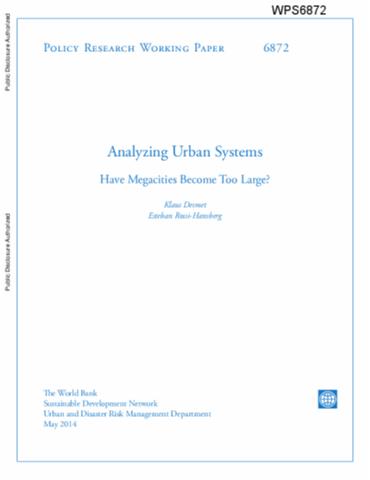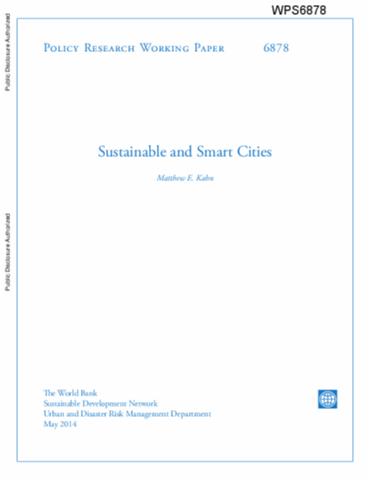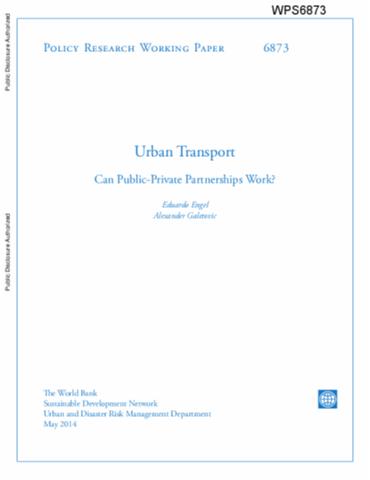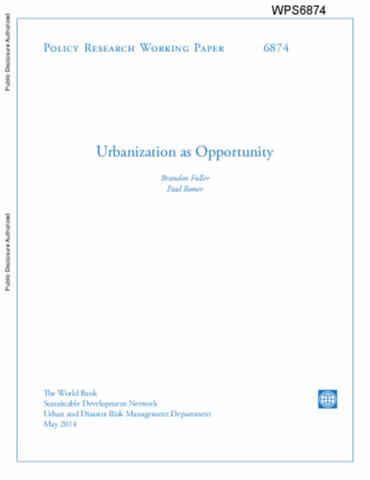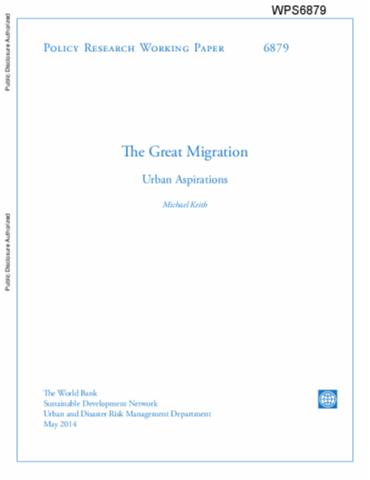The World Bank is a vital source of financial and technical assistance to developing countries around the world. We are not a bank in the ordinary sense but a unique partnership to reduce poverty and support development. The World Bank Group has two ambitious goals: End extreme poverty within a generation and boost shared prosperity.
- To end extreme poverty, the Bank's goal is to decrease the percentage of people living on less than $1.25 a day to no more than 3% by 2030.
- To promote shared prosperity, the goal is to promote income growth of the bottom 40% of the population in each country.
The World Bank Group comprises five institutions managed by their member countries.
The World Bank Group and Land: Working to protect the rights of existing land users and to help secure benefits for smallholder farmers
The World Bank (IBRD and IDA) interacts primarily with governments to increase agricultural productivity, strengthen land tenure policies and improve land governance. More than 90% of the World Bank’s agriculture portfolio focuses on the productivity and access to markets by small holder farmers. Ten percent of our projects focus on the governance of land tenure.
Similarly, investments by the International Finance Corporation (IFC), the World Bank Group’s private sector arm, including those in larger scale enterprises, overwhelmingly support smallholder farmers through improved access to finance, inputs and markets, and as direct suppliers. IFC invests in environmentally and socially sustainable private enterprises in all parts of the value chain (inputs such as irrigation and fertilizers, primary production, processing, transport and storage, traders, and risk management facilities including weather/crop insurance, warehouse financing, etc
For more information, visit the World Bank Group and land and food security (https://www.worldbank.org/en/topic/agriculture/brief/land-and-food-security1
Resources
Displaying 1641 - 1645 of 4907Analyzing Urban Systems : Have Megacities Become Too Large?
The trend toward ever greater urbanization continues unabated across the globe. According to the United Nations, by 2025 closes to 5 billion people will live in urban areas. Many cities, especially in the developing world, are set to explode in size. Over the next decade and a half, Lagos is expected to increase its population 50 percent, to nearly 16 million. Naturally, there is an active debate on whether restricting the growth of megacities is desirable and whether doing so can make residents of those cities and their countries better off.
Sustainable and Smart Cities
This paper explores the challenges and opportunities that government officials face in designing coherent 'rules of the game' for achieving urban sustainability during times of growth. Sustainability is judged by three criteria. The first involves elements of day-to-day quality of life, such as having clean air and water and green space. The provision of these public goods has direct effects on the urban public's health and productivity. The second focuses on the city's greenhouse gas emissions.
Urban Transport : Can Public-Private Partnerships Work?
Cities exist, grow, and prosper because they take advantage of scale economies and specialization wrought by agglomeration. But output growth inevitably stresses transport infrastructure because production requires space and mobility. To prevent congestion from crowding out agglomeration benefits and to expand the supply of urban land, cities must invest in transport infrastructure. Yet balancing the growing demand for infrastructure with its supply is often difficult. In particular, many cities lack the funding to maintain and expand streets and urban highways.
Urbanization as Opportunity
Urbanization deserves urgent attention from policy makers, academics, entrepreneurs, and social reformers of all stripes. Nothing else will create as many opportunities for social and economic progress. The urbanization project began roughly 1,000 years after the transition from the Pleistocene to the milder and more stable Holocene interglacial. In 2010, the urban population in developing countries stood at 2.5 billion. The developing world can accommodate the urban population growth and declining urban density in many ways.
The Great Migration : Urban Aspirations
The great 21st-century migration into cities will present both a great challenge for humanity and a significant opportunity for global economic growth. This paper describes the diverse patterns that define this metropolitan migration. It then lays out a framework for understanding the costs and benefits of new arrivals through migration's externalities and the challenges and policy tradeoffs that confront city stakeholders.






